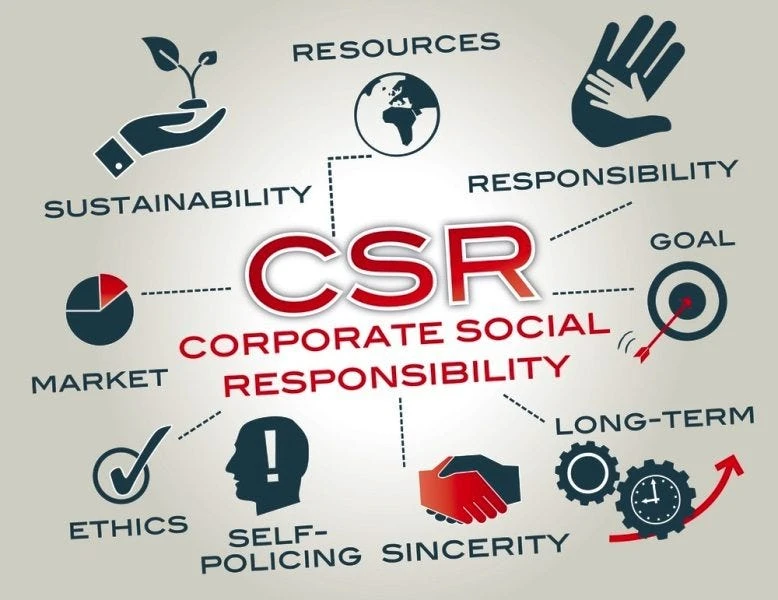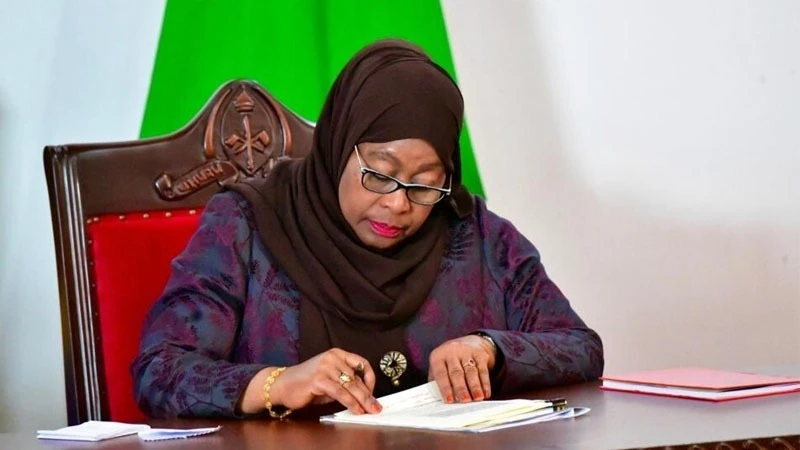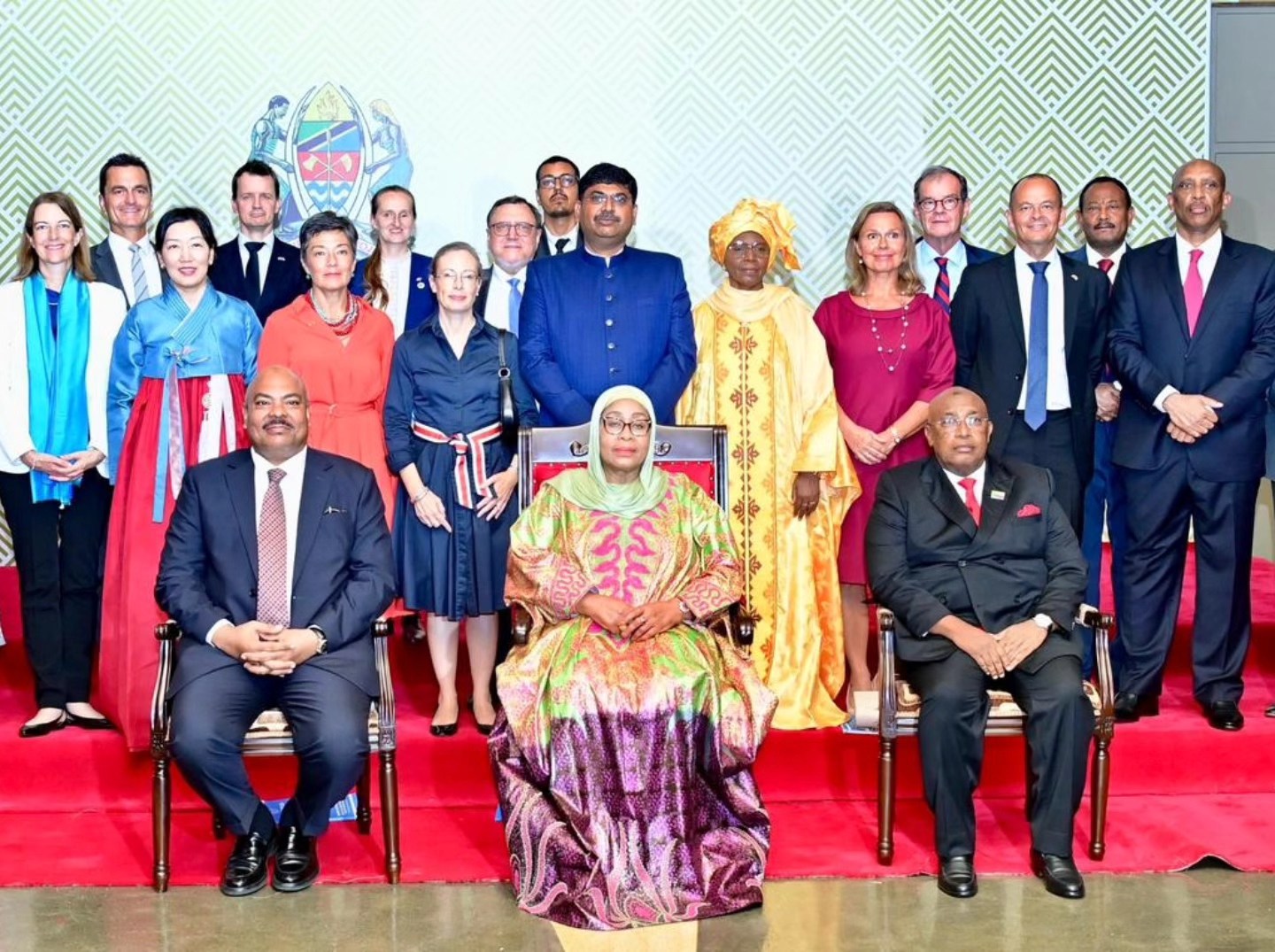SPECIAL REPORT: Enhanced cooperatives’ support in education, health infrastructures-10

Cooperative unions have been in the forefront in giving back part of their profits to the community through schools and health facilities construction projects in the form of corporate social responsibility (CSR) programmes.
The cooperatives have also been active in extending financial aid to the needy when natural disasters strike as a result of affecting the well-being of people's lives by identifying CSR programmes plans.
According to the United Nations Conference on Trade and Development (UNCTAD) a CSR programme is the corporate practice to contribute to the surrounding society. It can simply be termed as bringing back the part of the business profit to the society.
However, CSR programmes empower organizations into adopting sustainable practices, which in turn leads to proper use and maintenance of country’s key resources.
In Tanzania, CSR programmes are designed to ensure that the wealth accumulated and profits from exploited resources is not just equitably distributed but rather benefits are spread across multiple stakeholder groups in society which includes but not limited to companies, communities and the government.
Karim Chipola, Chairperson Tandahimba-Newala Cooperative Union Limited said that in giving back to the community through CSR programmes, the union had in May this year extended 50mn/- to the Mtwara regional government to help improve the infrastructure of primary and secondary schools.
"This is the third year since we started issuing CSR funds. In 2022 we issued 50mn/- and last year we issued 50mn/- for the regional health sector investments. The increase in profits has led us to double the CSR budget," he said.
Suzanne Ndomba-Doran, Association of Tanzania Employers (ATE) Chief Executive Officer, was of the view that when CSR programmes are employed well within the developing world the practice proves to provide much needed sources of finance for development activities which transcend into multiple advantages to local communities.
According to her, CSR programmes are an essential element to sustainably progressing the nation’s untapped potential on human, physical and natural capital.
Alhaji Salim, Chairperson Masasi-Mtwara Cooperative Union (MAMCU) said that at the beginning of this year the union had extended 50mn/- to the Mtwara regional government for it to improve community services including the education sector.
"We feel comfort and pride to be a part of the development of the community we come from by contributing part of our profit that we make every harvest season," he said.
CP Faustine Shilogile, Vice Chairperson URA SACCOS Limited board of directors said that in April this year the SACCOS donated 235.55mn/- through its CSR programme for the purchase of medical equipment in health centers which are under the custodian of the traffic police force.
Ress Mashurano, Chairperson Kagera Cooperative Union (KCU) told this journalist that the union formed by AMCOS 141 provides 2mn/- annually to every AMCOS under its custodian which is used for giving back to the community by implementing priority development projects through CSR programmes as recommended by the respective communities.
Lieutenant Colonel Lucy Chacha, Chief Executive Ngome SACCOS said that the SACCOS has been giving back part of its profits to the community in the health sector by providing medical equipment and supporting orphanage centers and special groups.
Samson Mwende, Chairperson Mombo Irrigation Scheme Agricultural Co-operative Society Limited in Rural Korogwe district of Tanga region said last year the Co-operative donated over 400 kilogram of rice to four primary and secondary schools in the district as part of giving back to the host communities through CSR programmes.
According to a paper by The Law Brigade (Publishing) Group dubbed: ‘A need of compulsory corporate social responsibility in Tanzania: an analysis of laws and practices’ published October 2022, there are shortfalls with monitoring of CSR projects in the country in relation to what investors reap from natural wealth.
The paper states that with the existence of various economic sectors like entertainment, industry, tourism, manufacturing, agriculture, transport, communication, sports, fishing, ports and so many other sectors.
However, over all these sectors it is only in the mining and petroleum sector where the CSR programmes are legally recognised.
The scenario infers that it is only the provisions of the Mining Act (Amendments) 2017 and the Petroleum Act of 2015 which considers the compulsory implementation of corporate social responsibility programmes.
On the other economic sectors the implementation of the CSR programmes are not addressed at all in the provisions of the law. Hence, the performance of the CSR programmes is left at the business entities’ discretion.
It asserts that the Tanzania Extractive Industries (Transparency and Accountability) Act No. 23 of 2015, the Mining Act (Amendments) 2017 and the Petroleum Act 2015 recognised the compulsory CSR programmes.
The said laws required that any person holding a right of dealing with natural resources has to prepare and implement a corporate social responsibility plan for the host communities of programme implementation.
“In this sense therefore, there is a need of amending the existing legal regimes or else to enact new laws which will recognise the compulsory implementation of CSR by all entities operating in all economic sectors in Tanzania,” reads the paper in part.
This journalist has learned that in the Constitution of the United Republic of Tanzania 1977 there is no specific provision which speaks about the CSR programmes. However, the constitution imposes the duty to the society to participate in works.
Article 25 of the Constitution imposes a duty to the public to participate in work so as to create material wealth within the community.
According to the Constitution it is the duty of every person in Tanzania to participate in lawful and productive work.
This has to be done so by observing work disciplines and striving to attain individual and collective production targets desired by law.
This journalist has established that in the year 2000 the UN Global Compact was formed. The instrument called upon the business corporations in the world to take up sustainability and socially responsible measures.
The companies were required to do the business responsibly to meet their main objectives as well as advancing the societal goals.
This is set out by complying with 10 principles of the UN Global compact which are aligned with the subjects related to human rights, labour, environment, and anti-corruption.
To be continued.
Top Headlines
© 2025 IPPMEDIA.COM. ALL RIGHTS RESERVED

























